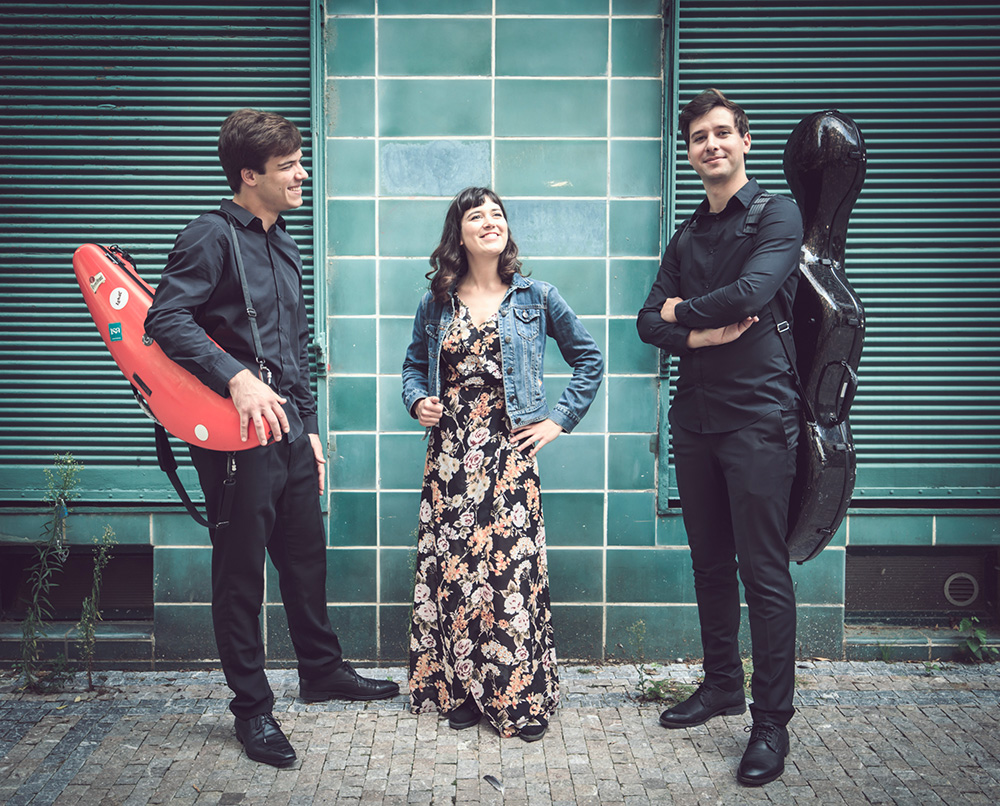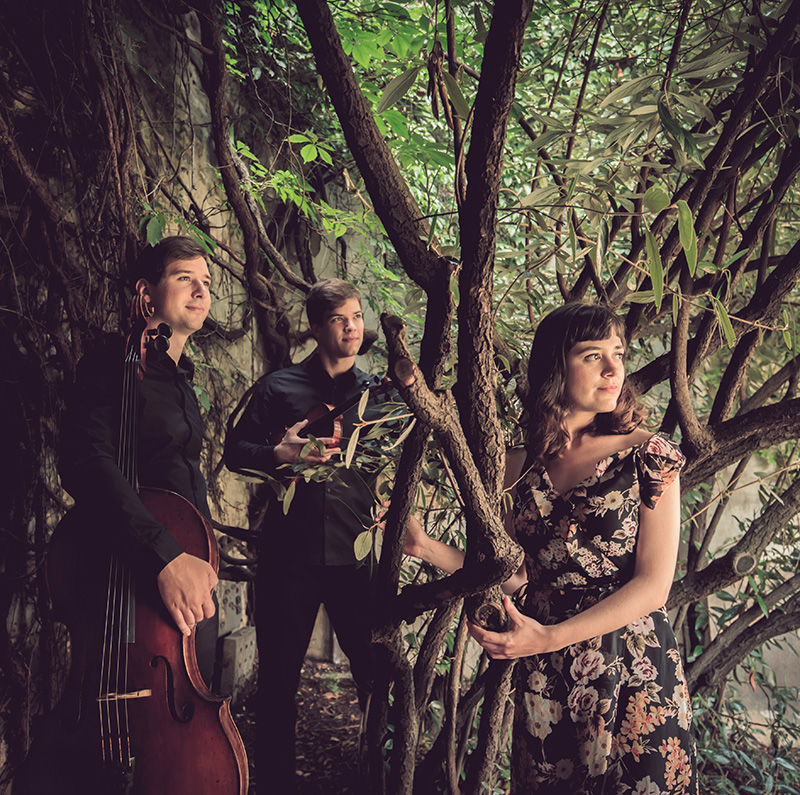Trio Incendio
Programme
- Joseph Haydn: Piano Trio in C major Hob. XV:27
- Wolfgang Rihm: Fremde Szene III
- Maurice Ravel: Piano Trio in A minor
Performers
- Trio Incendio
- Filip Zaykov – violin
- Vilém Petras – cello
- Karolína Františová – piano
Legendary pianist Alfred Brendel was certainly not mistaken when he declared the following of Trio Incendio in 2019: “Remember their name – we’ll be hearing a lot about them in the future.” The piano trio, whose members belong to the young generation of musicians – pianist Karolína Františová, violinist Filip Zaykov and cellist Vilém Petras – is racking up one success after another. The ensemble has been together since 2016 and has already amassed a large number of prizes in international competition: the International Joseph Haydn Chamber Music Competition in Vienna, the International Joseph Joachim Competition in Weimar, Gianni Bergamo Classic Music Award in Lugano, the Coop Music Awards in Cremona, Concorso Internazionale di Interpretazione Musicale “Marcello Pontillo” in Florence, and the Bohuslav Martinů Foundation Competition in Prague. They have appeared in London’s Wigmore Hall and the Berliner Philharmonie, and in 2023 they were selected to take part in the prestigious Academy programme at the international festival in Swiss Verbier; here they worked with members of the celebrated French string quartet Quatuor Ebène, who will perform at the Prague Spring on 25 May. “The coordination and unity of the ensemble’s three members are quite remarkable,” wrote Harmonie magazine. This is Trio Incendio’s first time at the Prague Spring: they will demonstrate their exceptional qualities in the atmospheric setting of St Agnes’ Convent in a programme combining the music of Joseph Haydn (1732–1809), Maurice Ravel (1875–1937) and the late classic of contemporary music Wolfgang Rihm (1952–2024).

“Haydn’s chamber oeuvre is the backbone of every piano trio’s repertoire. It is buoyant and brimming with elegance and wit, qualities we endeavour to convey to the audience. We performed Piano Trio in C major in practically all the competitions we entered, and it never lets us down,” says Karolína Františová, referring to the work which opens their Prague Spring programme. Joseph Haydn dedicated his piece to the eminent German pianist Therese Jansen-Bartolozzi, describing it as a Sonata for piano with violin and cello accompaniment.
“Wolfgang Rihm’s Fremde Szene III was the first contemporary work we included in our repertoire. It was surprising for us to discover how Rihm’s music shifts almost imperceptibly from parts reminiscent of Robert Schumann to places that resemble colours in an oil painting, or contrast with passages where actual rock music comes into play,” the trio’s pianist tells us, describing the next item on the programme. The renowned composer called his piece Versuche über Klaviertrio (Attempt at a piano trio), adding a note that it “resembles a heavy piece of furniture that gets in the way and doesn’t fit anywhere, but it’s still there. As happens in abandoned rooms, the ʽimpermissibleʼ can occur here, too: we find ourselves witness to strange mises en scène”.
“From the very outset it was our dream to play Ravel’s Piano Trio in A minor, but it was some time before we were able to make that happen,” states Františová. “Initially, we didn’t have the courage to go ahead with it, because it’s fiendishly difficult. Later on, when we were more experienced, it didn’t suit our repertoire – we were frequently performing in competition; although it deserved a place in our repertoire, it didn’t fit into the modern music or romantic categories. Now, after nine years on the scene, we can tick off two items on our wish list simultaneously! We’re finally playing this work by Ravel, and at the Prague Spring festival no less!” The piece, which Ravel completed shortly after the start of the First World War, provides a magical escape into a world of flickering colours, fleeting shadows and exoticism.








